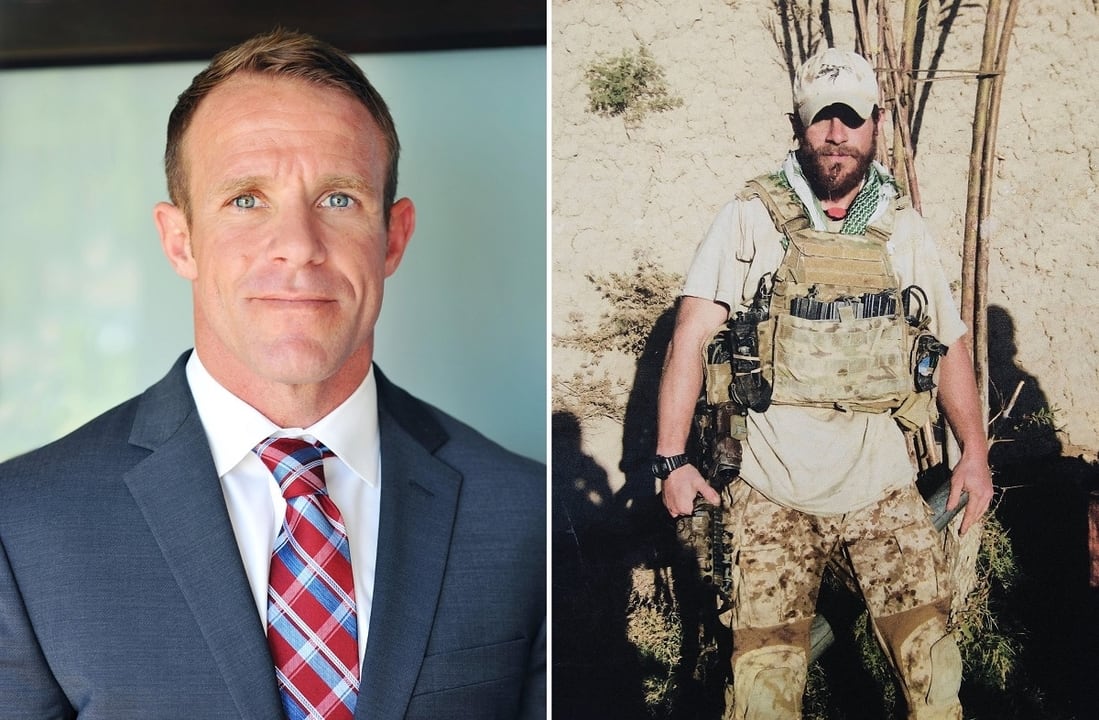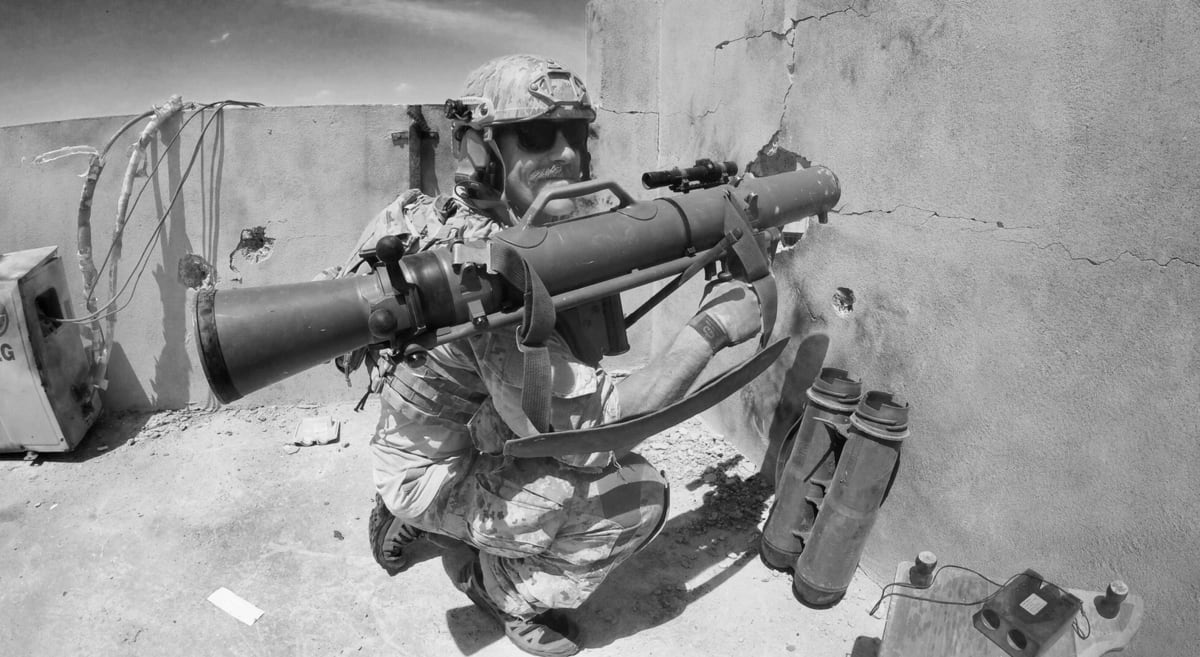SAN DIEGO — Attorneys for a Navy officer who supervised a SEAL accused of killing an Islamic State prisoner demanded prosecutors stop monitoring defense lawyer emails and put the case on hold, according to court documents obtained Wednesday by The Associated Press.
Lawyers for Lt. Jacob Portier also asked a judge to hold a public hearing into the intrusion and the extent of its impact — or dismiss the case.
A Navy prosecutor acknowledged the tracking as part of an effort to find the source of document leaks after being confronted last week, defense lawyers said.
RELATED

Leaks have plagued the case of Special Operations Chief Edward Gallagher, who has pleaded not guilty to murder in the fatal stabbing of an injured teenage militant in 2017 in Iraq. Portier, Gallagher’s platoon commander, is fighting charges of conduct unbecoming an officer for allegedly conducting Gallagher’s re-enlistment ceremony next to the corpse.
The case has become politically charged with GOP Congress members calling for prosecutors to drop the case and President Donald Trump tweeting in advance of Gallagher being transferred from the brig to a naval hospital that the move was to honor “his past service to our country.”
Defense lawyers want to know who approved the unusual snooping tactic and who is being targeted. If one of Portier’s lawyers is under investigation, it could create a conflict to represent him and violate “the sacrosanct confidentiality of the attorney-client relationship,” wrote Air Force Lt. Col. Nicholas McCue, one of Portier’s defense lawyers.
Gallagher’s attorney, Tim Parlatore, said he will seek dismissal of the case because of the intrusion or seek to have the prosecutors and judge removed from the case.
A Navy spokesman declined to comment.
The emails were sent to 13 members of the defense teams and to Carl Prine, a reporter and editor with the Navy Times newspaper who has broken several stories on the case based on leaked documents. None of the documents was classified, he said.
Parlatore noticed a suspicious logo of an American flag with a bald eagle perched on the scales of justice beneath the signature of Cmdr. Christopher Czaplak, the lead prosecutor.
During a closed-door court meeting Friday in San Diego, defense lawyers complained about the emails and learned that the judge in Gallagher’s case, Cmdr. Aaron Rugh, had held three private meetings with prosecutors and was aware of the investigation and software, attorney Jeremiah J. Sullivan III said in court documents.
Lawyers were told to contact Assistant U.S. Attorney Fred Sheppard, a prosecutor in the federal court system, which is separate from military courts.
Sheppard did not return an email or voicemail seeking comment from AP. Kelly Thornton, a spokesman for the U.S. attorney in San Diego, said in a statement that her office “is not handling the ongoing court martial proceedings involving Edward Gallagher and is not involved in the production or dissemination of discovery in that case.”
It is not clear what role federal prosecutors might play in the investigation, but having another arm of the government looking into the leaks might not raise serious legal or constitutional questions, said David Glazier, a professor at Loyola Law School and Navy veteran. A separate investigation would provide a firewall to prevent information gleaned from the defense from being shared with prosecutors.
However, in this case, the emails came from the military prosecutor, which compromises the integrity of the effort, he said.
“The fact that they used the vehicle from the military prosecutor to get into the computers of the defense team makes this case unique and, to my mind, does taint it,” Glazier said. “How can the defense now trust any communications they would get from the prosecution again and how do they trust that their computers don’t now have some Trojan horse that could now be sharing privileged communications with the government?”
Melley contributed from Los Angeles.





